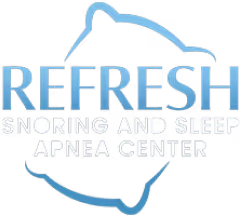Sleep apnea and heart disease have been proven to have a direct link for some patients. Sleep apnea is a serious sleep disorder that affects billions of people worldwide, and is characterized by repeated episodes of interrupted breathing during sleep, leading to poor sleep quality, snoring and daytime fatigue. While many people think this disorder only affects sleep, the truth is that it can have a significant impact on overall health and wellness, including a connection to heart disease.
Studies have shown that people with sleep apnea are at a higher risk of developing cardiovascular diseases such as hypertension, heart attack, stroke and even sudden death. This is thought to be due to the fight or flight response caused by an apnea event as ell as the repeated drops in oxygen levels that occur during sleep apnea episodes. When this is ongoing for years it put a significant strain on the heart and causes thickening of the blood vessels. Additionally, sleep apnea can cause general inflammation throughout the body, which can also contribute to an increased risk of cardiovascular disease.
During an apenic episode, the person’s brain will signal the body to wake up in order to open the airway. This can happen multiple times per night, interrupting the normal sleep patterns, and causes the person to wake up frequently. The person experiences poor sleep quality and fragmented sleep, which in turn can lead to increased levels of stress hormones such as adrenaline and cortisol, which can put extra stress on the heart.
Moreover, sleep apnea can lead to chronic hypoxia, which is a condition in which the body doesn’t get enough oxygen, this can cause damage to the heart and blood vessels over time, and increases the risk of uncontrolled high blood pressure, heart attack and stroke.
It’s important to note that while there is a clear connection between sleep apnea and heart disease, not all people with sleep apnea will develop heart disease. However, if you have sleep apnea and are at risk of heart disease, it’s important to talk to your doctor about the best treatment options for you.
Continuous positive airway pressure (CPAP) therapy is one of the most common treatments for sleep apnea, and is proven to be effective in improving sleep quality and reducing daytime symptoms. There are also other treatment options such as dental appliances, lifestyle changes, and even surgery, that can be effective in treating sleep apnea.
It’s important to talk to your doctor about the best treatment options for you if you have sleep apnea. If you are in Castle Rock, Colorado Springs, or Denver, CO find out how with our oral appliance treatment options it is possible to manage sleep apnea and reduce the risk of heart disease.

.svg)




